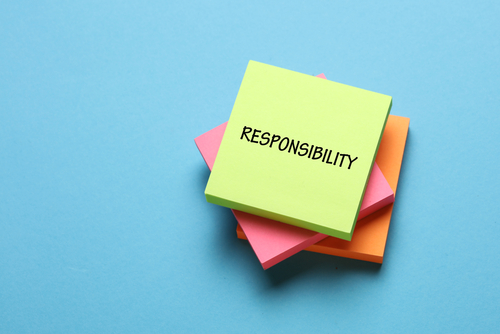Newcomers to recovery need to learn how to manage their sobriety once detox and treatment has concluded. They have to have the right attitude toward recovery in addition to having a firm intention and commitment to stay sober and clean. However, the best intentions can be defeated by outdated ideas of addiction. One of these barriers is blame. Effective addiction recovery requires accepting responsibility, not assigning blame.
Blame is Counterproductive
Everyone has come across someone assigning blame at some point in their lives. They may even have done it themselves. People tend to assign blame to someone else to avoid taking responsibility for the emotional repercussions or consequences of their actions. It could be anything from the economy to the neighbor’s dog. Someone else is always to blame. But blame gets nobody anywhere, it is nothing more than an exercise in futility.
The same is true in addiction recovery. The individual in recovery could blame their family for passing down the gene that makes them susceptible to addiction. They could blame friends for getting them started on drugs or alcohol. And finally, they could blame themselves for being weak, or selfish. In fact, individuals in recovery often do.
However, blame assumes a passing of negative judgment for what has occurred and implies a kind of futility or lack of cause. What is more appropriate is for the individual to have a sense of personal responsibility so as to move on from the consequences toward healing and growth.
Begin Accepting Responsibility
It is easier said than done to stop using blame as an excuse and start taking responsibility. The individual needs to do more than pay lip service, but at least it’s a start. Start by acknowledging that from this point onwards you will be responsible for what you say or do and how you think about your role in recovery.
According to addiction recovery experts, newcomers to recovery should take small steps, and not make any major life changes during the first year. Even returning home after treatment is a big deal. The focus should be on the individual’s recovery. They should allow themselves time to acclimate to their new daily routine, including going to 12 step meetings, therapy, and doctor visits. The individual shouldn’t try to figure everything out at once, because that is setting them up for failure, and bringing them back to the blame game.
When a patient in recovery accepts responsibility, it is a healthy sign that they are ready to move forward with positive life change. Recovery is a lifelong process. A person who has come out of addiction will always be in recovery. It is best to take the long view, and then any challenges that come the individual’s way will be easier to overcome.
It is possible to maintain long term sobriety. LEAD Recovery Center promotes health, balance, and a love for life through a transitional multi-phase program for those who have completed thirty day residential treatment. Call us today for more information at 1-800-380-0012.


